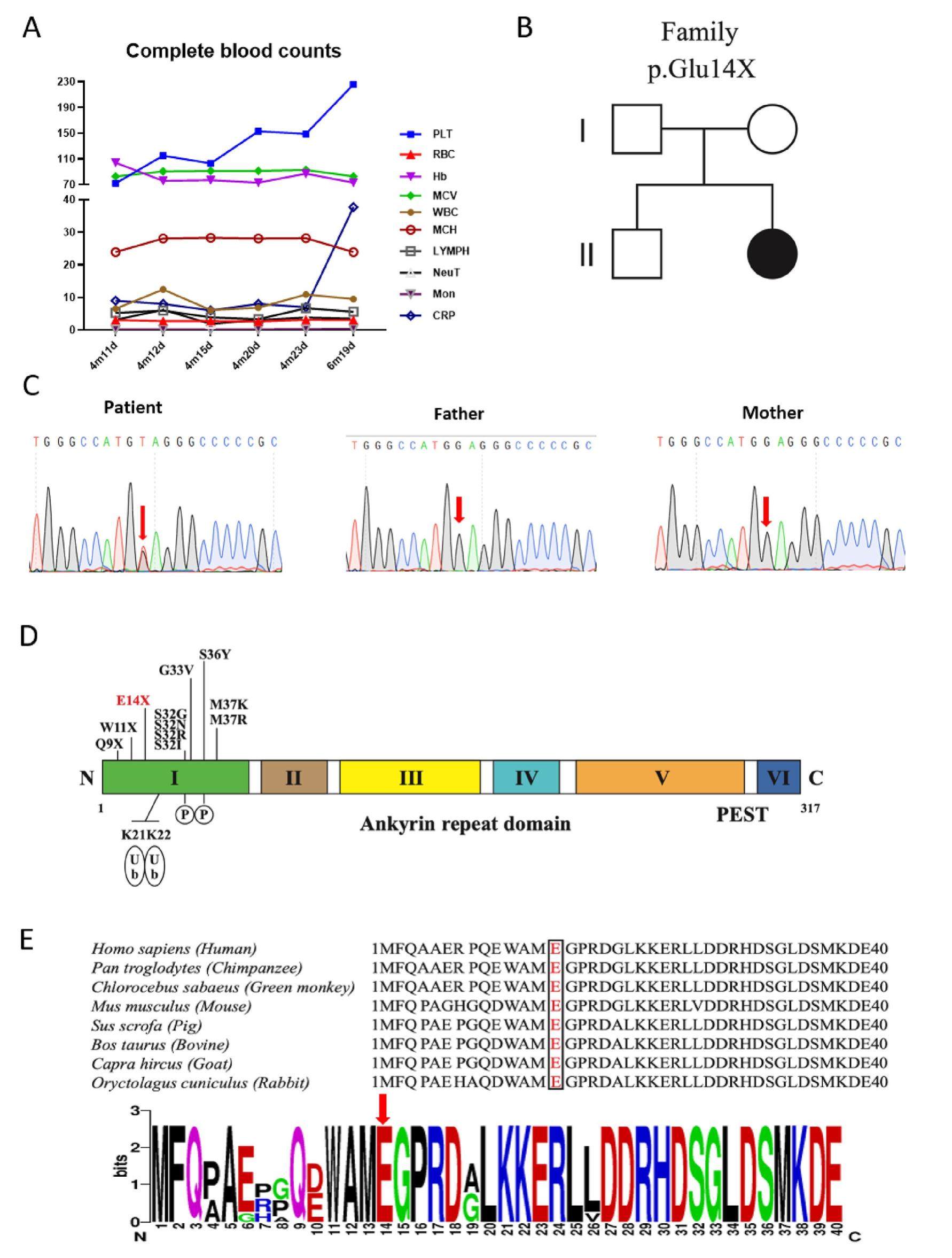
A heterozygous N-terminal truncation mutation of NFKBIA results in an impaired NF-κB dependent inflammatory response


Germline heterozygous gain-of-function (GOF) mutation of NFKBIA, encoding IκBa, would affect the activation of NF-κB pathway and cause an autosomal dominant (AD) form of anhidrotic ectodermal dysplasia with immunodeficiency (EDA-ID). Here we reported a Chinese patient with a heterozygous N-terminal truncation mutation of NFKBIA/IκBa. She presented recurrent fever, infectious pneumonia and chronic diarrhea with EDA-ID. Impaired NF-κB translocation and IL1R and TLR4 pathway activation were revealed in this patient. The findings suggested that the truncation mutation of IκBa caused medium impaired of activation of NF-κB but the early death. Furthermore, we reviewed all the reported patients with NFKBIA mutation to learn more about this disease.
